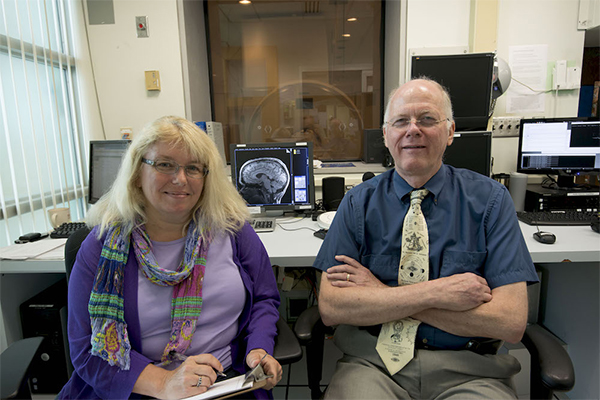The brain’s wiring is linked to good – and bad – behavioral traits
The way our brains are wired may reveal a lot about us, according to new research co-authored by scientists at Washington University in St. Louis. For example, people with “positive” behavioral traits, such as sharp memories, many years of education and robust physical endurance, have stronger neural connections between certain brain regions than people with “negative” traits, such as smoking, aggressive behavior and a family history of alcohol abuse.
Brain network decay detected in early Alzheimer’s
In patients with early Alzheimer’s disease, disruptions
in brain networks emerge about the same time as chemical markers of the
disease appear in the spinal fluid, School of Medicine researchers have shown. Pictured is senior author of the study, Beau Ances, MD, PhD, associate professor of neurology and of biomedical engineering.
Brain’s flexible hub network helps humans adapt
New research from Washington University in St. Louis offers compelling evidence that a well-connected core brain network based in the lateral prefrontal cortex and the posterior parietal cortex — parts of the brain most changed evolutionarily since our common ancestor with chimpanzees — contains “flexible hubs” that coordinate the brain’s responses to novel cognitive challenges.
Daydreaming simulated by computer model
Scientists have created a virtual model of the brain that daydreams like humans do. They hope the model will help them understand why
certain portions of the brain work together when a person daydreams or
is mentally idle. Shown is the study’s senior author, Maurizio Corbetta, MD.

